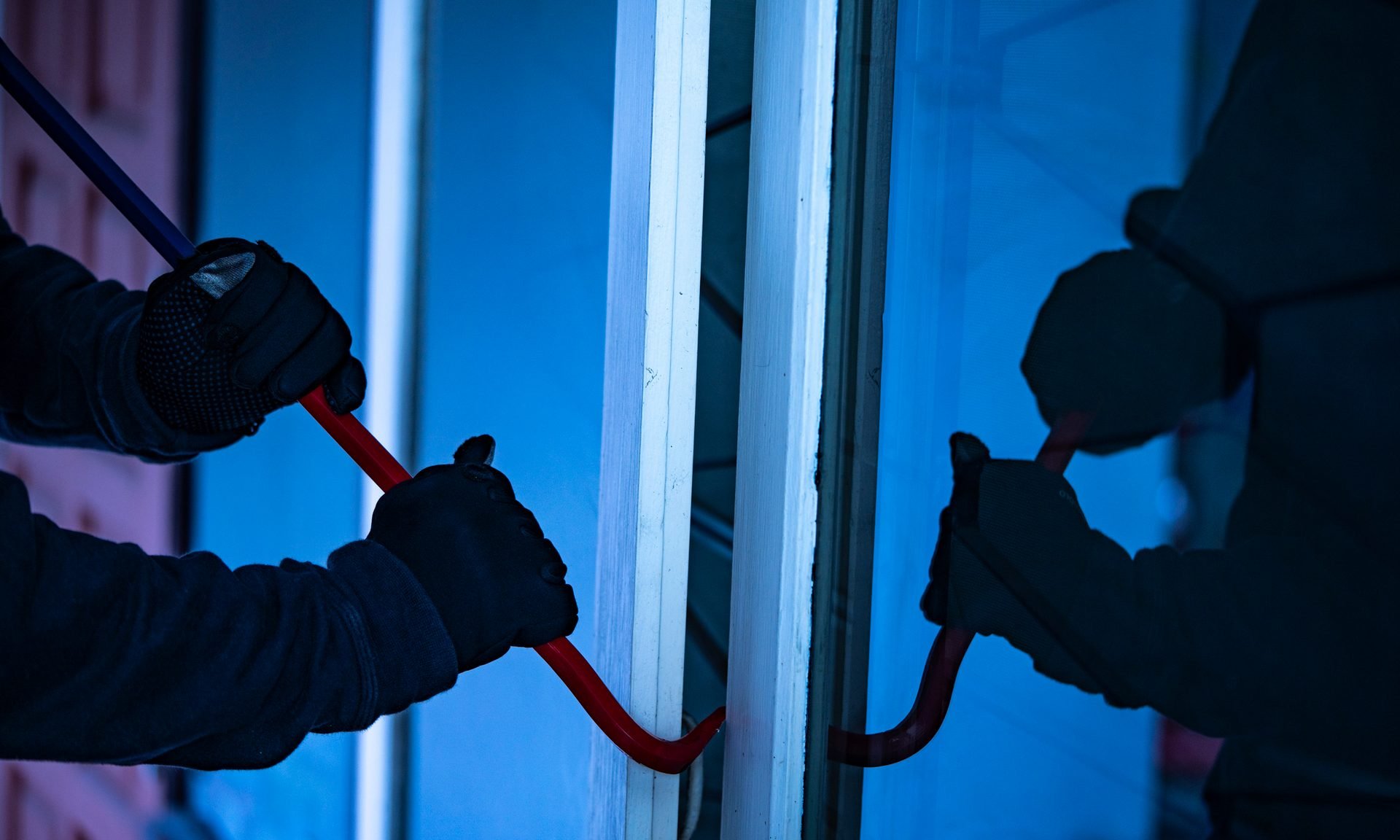5 Ways to Prevent Burglaries with a Home Security System
Knowing some of tricks that intruders often use can help you maximize your home security system to prevent burglaries.

Some or all of the mortgage lenders featured on our site are advertising partners of NerdWallet, but this does not influence our evaluations, lender star ratings or the order in which lenders are listed on the page. Our opinions are our own. Here is a list of our partners.
Burglaries decreased substantially from 2012 to 2022 (the most recent year of data available), according to the FBI . However, burglaries rose 26% between 2021 and 2022, reaching nearly 850,000 — still a significant number, considering that the FBI’s Crime Data Explorer contains data from only about two-thirds of American law enforcement agencies in that period .
It’s likely no coincidence, then, that home security systems have become much more advanced over the past decade. However, not all security systems are created equal. Here are five ways to maximize the effectiveness of your alarm system to prevent burglaries.
1. Display your home security system clearly.
According to the FBI, more residential burglaries occur during the day than at night . What burglars see outside your home could make a difference. Accessories such as yard signs and window stickers can help broadcast your security system’s existence.
“These are crimes of opportunity,” says Geoff Kohl, Senior Director of Marketing at the Security Industry Association. Kohl cited a 2013 study led by a researcher from the University of North Carolina at Charlotte Department of Criminal Justice and Criminology, which found that over 80% of perpetrators would check a home to see if there was an alarm system or any security technology — and usually go to a different location if they spotted anything .
“If you have a system, make sure you sign it,” Kohl says.
A sticker on a window might not be enough, though. Burglars may still check for an actual camera or keypad. Also, several alarm companies warn that fake stickers or signs mimicking an actual security company may violate copyright laws.
If you have actual security equipment, make sure those items are “extremely visible,” Kohl says. Hidden cameras have their value, but an outdoor camera in a prominent location can deter burglars. Many outdoor cameras are wireless, so you don’t need to sacrifice location for power.
2. Protect entry points first.
According to the FBI, in 2019 (the most recent data for these statistics), 37.8% of burglaries were unlawful entries. This means the perpetrator did not use force to enter the home, such as breaking windows, picking locks or forcing doors open — they simply walked in .
Investing in a smart door lock with a keypad that requires a code, especially a lock that can be locked and unlocked remotely, can provide vital protection for your home’s primary entry point — and give you peace of mind if you’re away from home and can’t remember if you locked the door, Kohl says.
“A key can be copied, and once it's copied, you don't know where it is,” he says.
Smart deadbolts are one way to give a friend or service provider access to your home for a limited time period — say, two hours to fix the plumbing or walk the dog — with a one-time code.
Even in cases where burglars do “break and enter," they’re typically still using entry points, forcing open garage doors, windows or doors. With this in mind, securing your home’s entry points should be a priority, especially if you have a limited budget or are just getting started with home security.
If you’re ready to add to your system, door/window sensors that alert you when an entry point is open are a great next step. Some companies even make specific sensors for garage doors.
3. Leave the lights on (sometimes).
“You don’t want to broadcast the fact that you’re not around," Kohl says. “If your house is the only house on the street where the lights have been out for two weeks, and if someone’s in the area and is maybe looking to perpetrate a crime, they’re probably going to notice that.”
If you’re planning an extended vacation, make sure you have someone to collect your mail, especially if it lands at your front door. Also, recreate some human activity. Many home security systems can turn lights on and off at scheduled times, simulating your typical daily routine even when you’re gone. There are even devices that mimic a TV flicker.
4. Invest in active deterrents.
Many outdoor cameras have motion-activated floodlights, which are usually very bright and might startle an intruder creeping along a home’s perimeter. Some even activate flashing lights and a loud siren — though this may be overkill if your system is prone to false alarms.
Whether you add deterrents to the outside of your home or not, it’s important that a door or window sensor triggers a siren if your system is armed. If your system sends you a phone alert but nothing physically occurs in the home, an intruder may not be deterred.
5. Consider professional monitoring.
Even with deterrents in place, a break-in is still possible, and you may have no way to respond to alerts if you’re lying on a beach thousands of miles away (and burglary rates tend to rise during summer, according to the Department of Justice) .
“If you’re on a cruise, you may not have internet connectivity, so if you’re self-monitoring your security system, you may not be able to look at that camera or see the status on that lock,” Kohl says. If someone breaks into your home and sets off an alarm or a camera alert, you’ll still need to contact local authorities to stop them.
Some companies require a multiyear contract for professional monitoring, which can work for those who want year-round protection, but others allow you to activate the service for just a month without a contract. Prices range from around $20 to $40 per month.
Still, professional monitoring can be worthwhile, Kohl says. It enables a home security company’s agents to send emergency services to your home if the alarm goes off, even if you’re not reachable.
Article sources
NerdWallet writers are subject matter authorities who use primary,
trustworthy sources to inform their work, including peer-reviewed
studies, government websites, academic research and interviews with
industry experts. All content is fact-checked for accuracy, timeliness
and relevance. You can learn more about NerdWallet's high
standards for journalism by reading our
editorial guidelines.
- 1. Federal Bureau of Investigation. Crime Data Explorer. Accessed Aug 16, 2024.
- 2. The Marshall Project. 4 Reasons We Should Worry About Missing Crime Data. Accessed Aug 16, 2024.
- 3. Federal Bureau of Investigation Crime Data Explorer. Burglary by Location Type Counts. Accessed Aug 16, 2024.
- 4. University of North Carolina at Charlotte. Through the Eyes of a Burglar - Study Provides Insights on Habits and Motivations. Accessed Aug 16, 2024.
- 5. FBI Uniform Crime Reporting (UCR) Program. Crime in the United States. Accessed Aug 16, 2024.
- 6. U.S. Department of Justice. Seasonal Patterns in Criminal Victimization Trends. Accessed Aug 16, 2024.
More like this
Related articles







